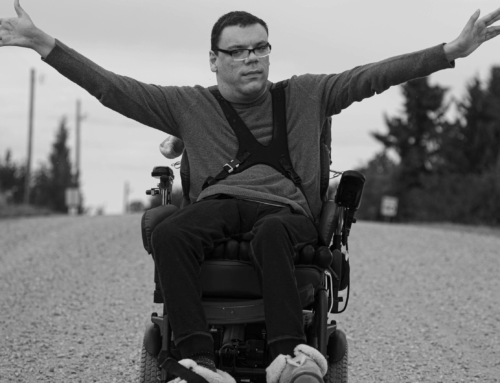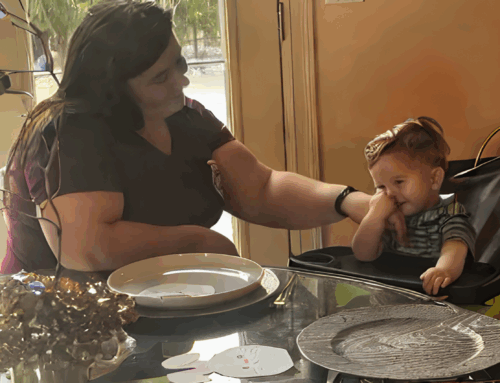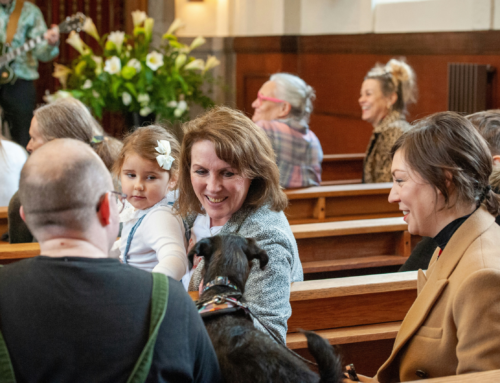In a recent episode of The Mad and Crip Theology Podcast, poet Mike Walker and I reflect on the experience of loneliness for ourselves and many others with disabilities. The Bible tells us that it is not good for humankind to be alone (Genesis 2:18). A sense of belonging to community may have positive impacts on social, emotional, spiritual, and even physical health. As a disability services provider I have wrestled with whether the responsibility to foster communities of belonging that engage people with disabilities lies primarily with service providers, people with disabilities, or the communities around them.
Regardless of who is responsible for which parts of fostering communities of belonging, many people with disabilities, service providers and wider communities have made significant efforts to foster communities of belonging and yet for many people who experience disability the blessings of community remain elusive. I have struggled to understand why this might be. In the introduction of Disability Visibility, author Alice Wong shares some insight which relates to this. She says “Staying alive is a lot of work for a disabled person in an ableist society.” This is increasingly true as Canadians with disabilities must work very hard to procure basic necessities as adequate housing, and Bill C7 permits – if not encourages – them to give up, to die.
As I reflected on Wong’s sentiment and my own life, it occurred to me that prior to the pandemic and beyond I have to spend considerable energy managing my health needs, treating my spasticity, ensuring that my custom built foot braces continue to support my feet well and advocate that all of my personal care attendants are trained on my range of motion routine.
Especially in the pandemic (but also before and after) I face the revolving challenge of recruiting, hiring, training, and rehiring personal care attendants. I could rely on an agency to hire support workers for me but then I would have to absorb the risk of them showing up early, late, or not at all. Furthermore, I would have to bear the risk of them working with multiple clients and a heightened risk of exposure to COVID-19 and other airborne diseases.
While all people have had to be vigilant about health precautions throughout the pandemic, as a person with physical challenges and respiratory vulnerability, I have had to be hypervigilant about procuring, organizing, and distributing PPE so that personal care attendants do not inadvertently cause me to become deathly ill as they support me even when self isolating in my home. This is getting worse rather than better in the current phase which permits a lack of social distance without the need to wear masks.
In order to address my emotional, social and spiritual needs I spend further effort advocating for minimally available accessible transit to help me get from my house to church and social outings. I must also manage the tasks of daily living and work-related tasks that many people without disabilities also have to manage.
These tasks are necessary parts of my fulfilling life. They are not tasks that I desire to, or will, stop. I mean to recognize that a large proportion of my time and energy is strictly devoted to survival. I know that if I had further medical complications, or if these develop in the future, the proportion of time and energy spent on survival would be even greater.
In a speech as part of the Human Rights Campaign Wentworth Miller says when you’re in survival mode, there isn’t space for “we” or “community.” It becomes all about “I” and “me.” He is not relating specifically to the challenges of disability, or faith communities fostering , but he shares valuable information about the challenges that may arise if you feel singular, different, and alone; if you have to spend the majority of your days in survival mode over the long term. These challenges may include, but are not limited to, loneliness, depression, or suicidal ideation.
The paradox is that communities that are characterized by responsiveness and support may be instrumental in ensuring that people are not forced to live in survival mode for too long. Cara Milne, Erik Carter, and others notice the protective factors that come from being known, noticed and missed.
Perhaps accessible communities need to be founded on consideration of how you might share the burdens of people who experience disabilities so that they know that they are loved, so that they do not have to spend all their energy in survival mode.
What might you or your faith community do to show that God (and you by extension) is watching, listening, and caring about families who experience disability, and other marginalized people?


